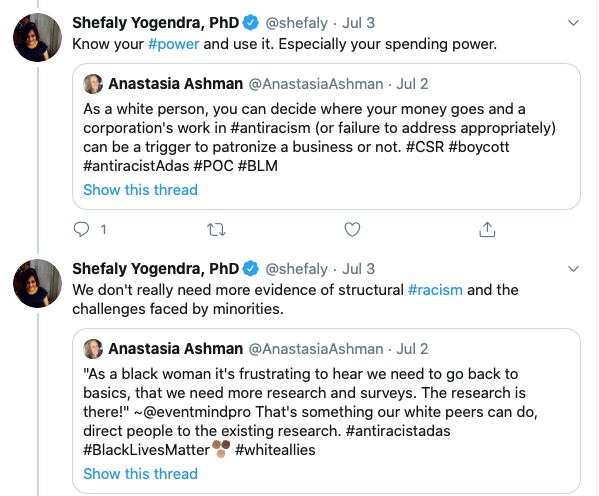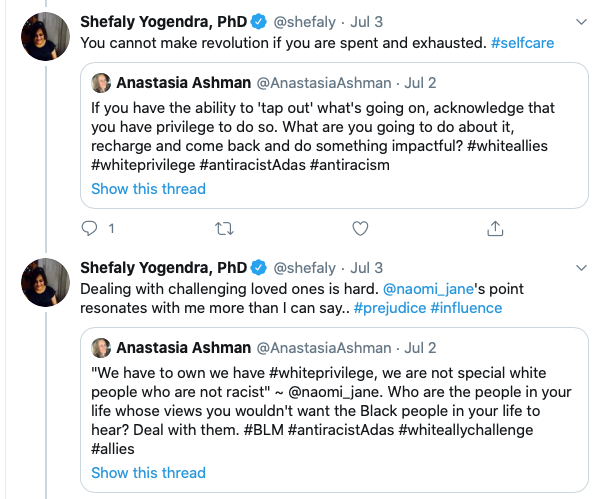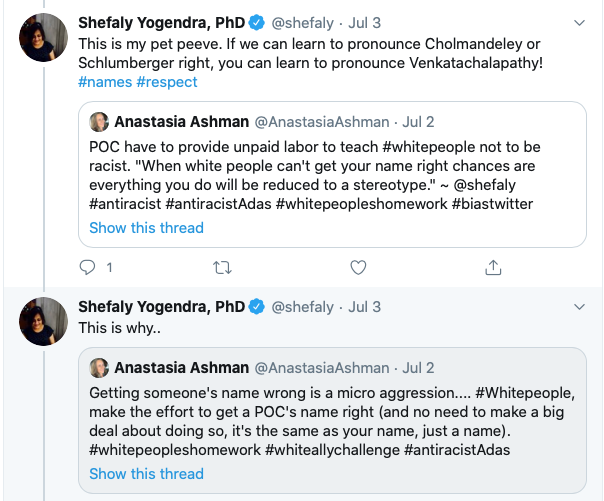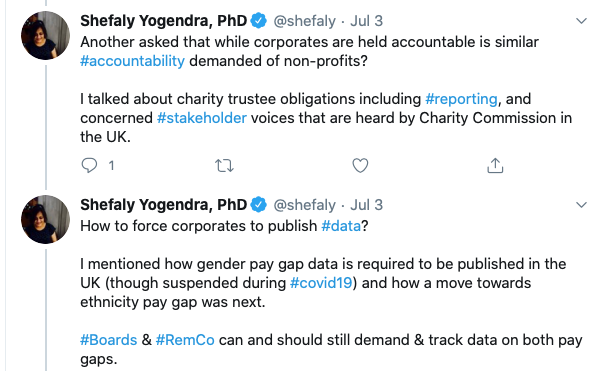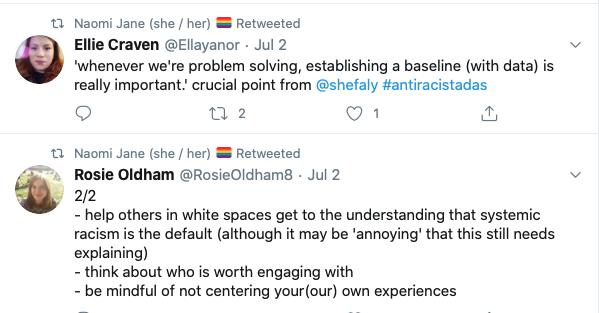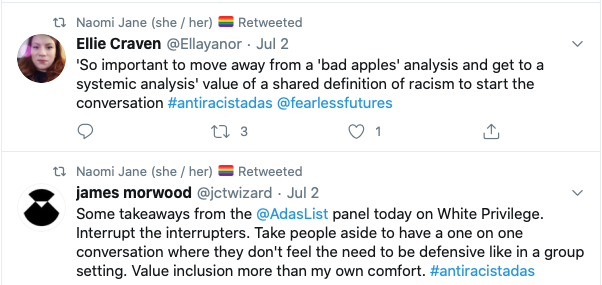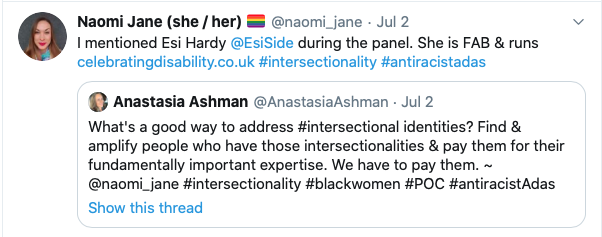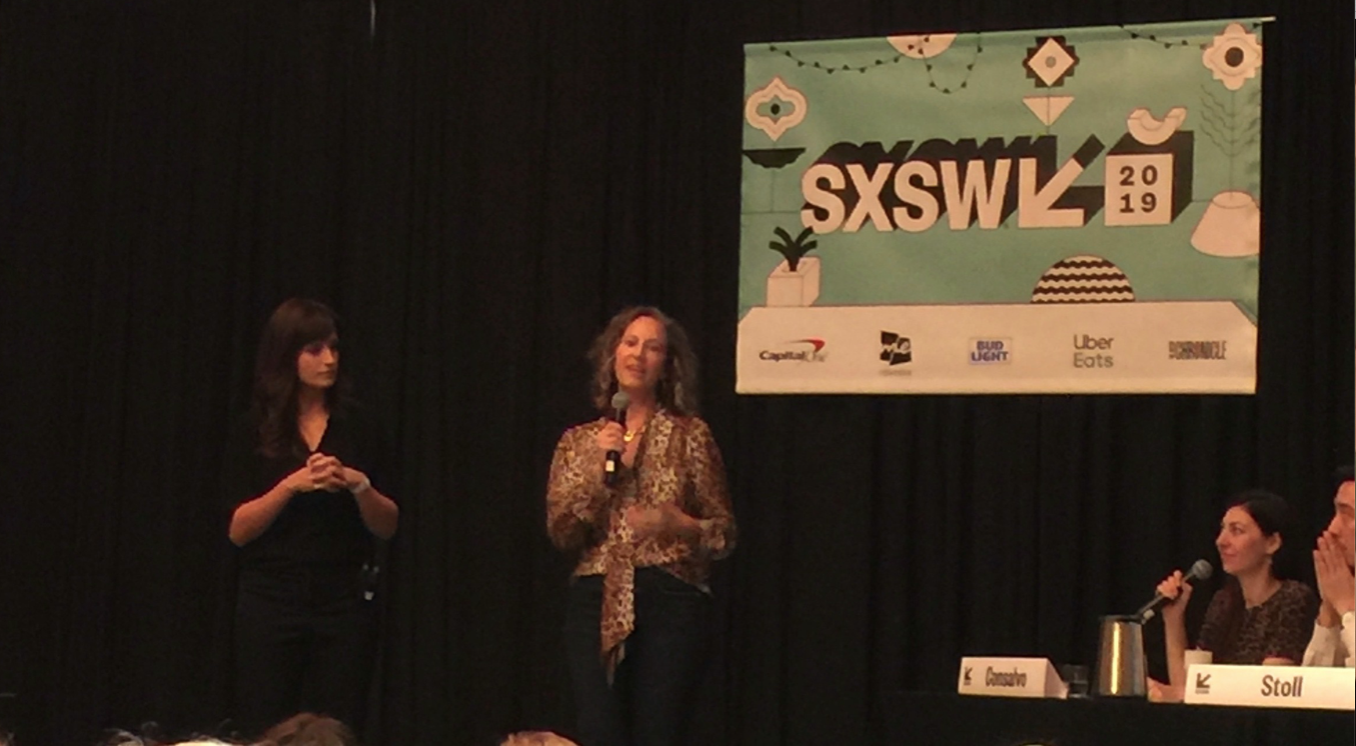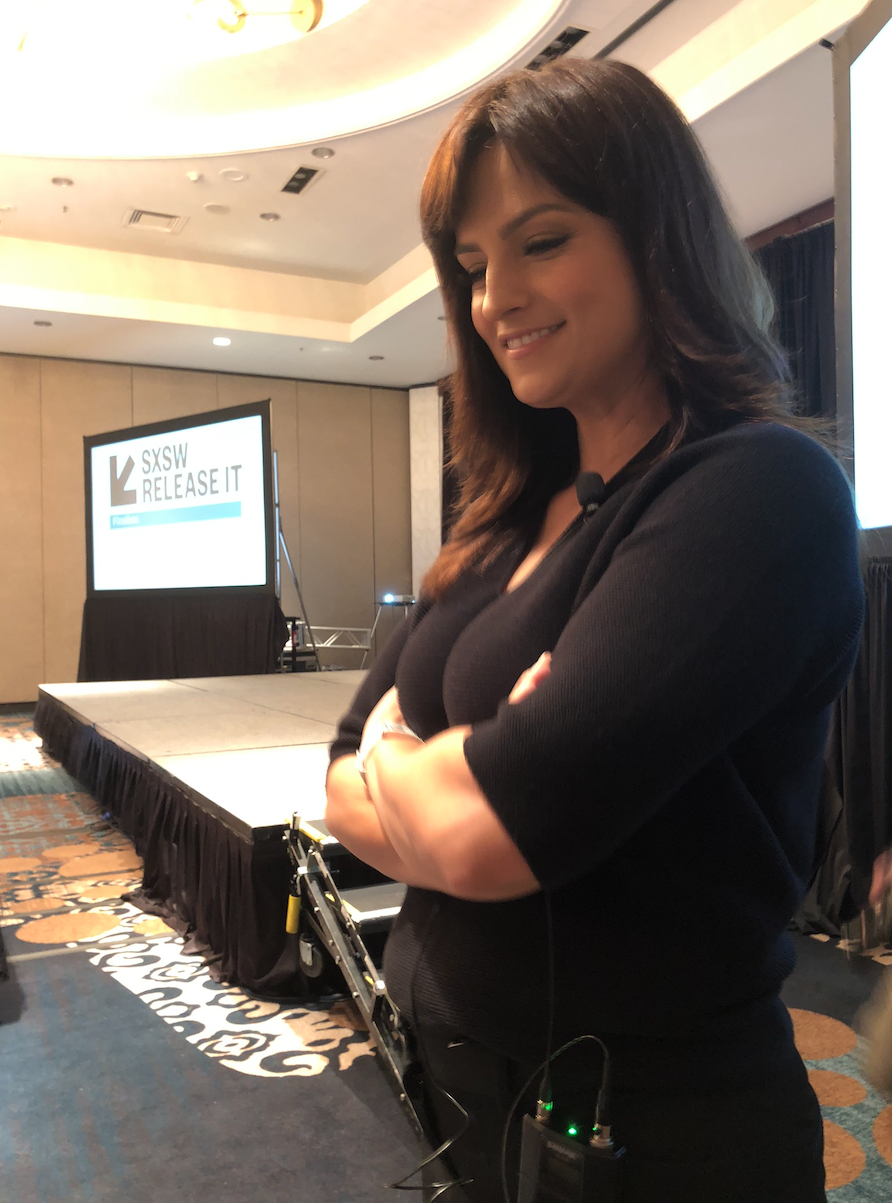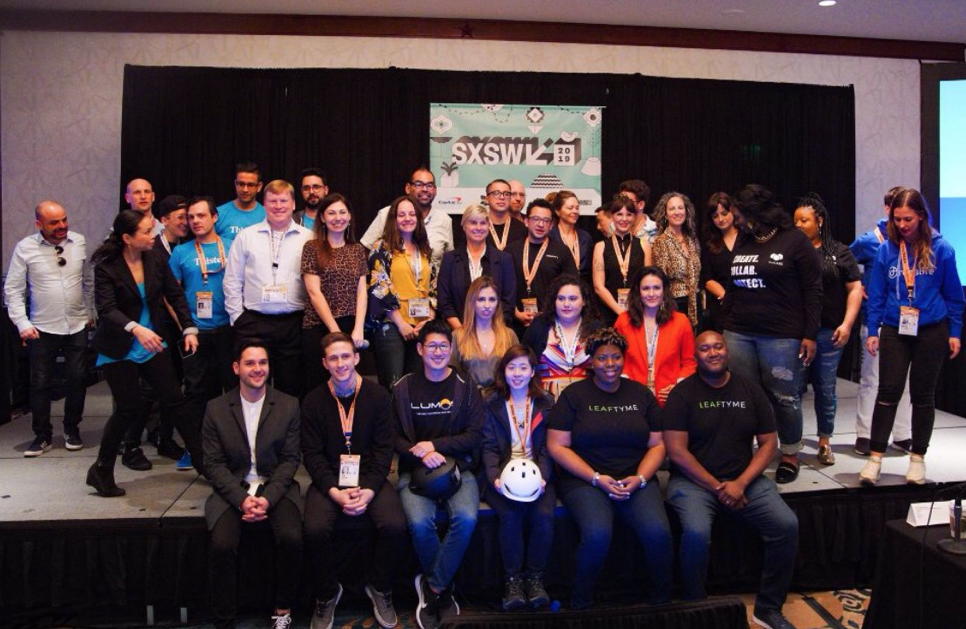You may have guessed that women in tech & digital are under represented across management/teams.
I live tweeted an antiracism panel attended by 300 people from around the global and produced by Ada's List, an intersectional group committed to changing the tech industry at scale — from culture of a company, an overt policy, to processes that sideline women.
Radical, systemic change starts with us, says Ada’s List founder Merici Vinton.
Ada’s List is the place for professional women who work in and around the internet to connect, conspire, and take a stand. The group of 700
promote, support, hire & interview women
recommend 1 qualified woman or POC to interview for each open position
make our environment positive
help juniors progress in their careers
Sound familiar? It’s their take on the Shine Theory of Aminatou Sow and Ann Friedman, says Vinton.
On White Privilege: Getting uncomfortable with our privilege, bias, and 3 actions to take is an event to keep focused on dismantling racist structures, raises funds for three Black-led organizations (@TheSisterSystem @ThisIsYSYS @azmaguk), and is part of the Ada’s List ReStructure Series. The rolling series of talks discuss and proactively work through some of the biggest issues coming out of the events happening right now.
"How are you doing?", Vinton as moderator of the panel asks the women of color, re Black Lives Matter protests.
"I spent the last 3 mos having these conversations. The process of exploring, meeting people where they are is quite healing," says one woman.
"Pissed it's taken so long for people to recognize this is a problem," answers another.
In company replies to BLM, "The voice of perpetrators & observers was amplified, centering their response rather than centering the pain,” points out Shefaly Yogendra. She digs into this in her blog "BLM in the Boardroom". "Where are your metrics?" she asks these companies that are virtue signalling. (Read Shefaly’s Twitter thread about the panel.)
Virtue signalling. Have you heard of it? Another example of virtue signaling is the number of “BlackoutTuesday” profiles vs. the number of people signing petition to see justice done in the case of Breonna Taylor, one panelist pointed out.
"This is 400 years of oppression, it's not going to be solved in a webinar," says a panelist.
Also, "Resistance is normal", it's not a sign you shouldn't continue to speak up as a white ally when appropriate....get used to that feeling.
Be aware where you can be most effective. Not all platforms are the right place, fighting trolls on Twitter may not be worth your while.
Some conversations will be more effective when done in private. But NOT saying something is no longer an option.
"Diversity and inclusion is like any other business performance metric, or at least it should be," says Ashanti Bentil-Dhue
"Don't ask POC to do your org's work for free" says Yogendra.
"Talking about race is a non-negotiable now," adds Bentil-Dhue, but some business leaders think it's optional.
"We have a problem in the corporate space that can't talk about unconscious bias, in gender & race," says Naomi Jane.
As a white person, you can decide where your money goes and a corporation's work in antiracism (or failure to address appropriately) can be a trigger to patronize a business or not.
"As a black woman it's frustrating to hear we need to go back to basics, that we need more research and surveys. The research is there!" says Bentil-Dhue.
That's something our white peers can do, direct people to the existing research.
This history of management is based in slavery & we have to address that to improve
The history of management is based in slavery, once you see it you can see what it's doing to the people you work with and what you can change to make people the best they can be, says Yogendra.
If you have the ability to 'tap out' from what's going on, acknowledge that you have privilege to do so.
What are you going to do about it, recharge and come back and do something impactful?
How does the recruitment process or governance structure of your organization perpetuate racism?
POC have to provide unpaid labor to teach white people not to be racist.
"When white people can't get your name right chances are everything you do will be reduced to a stereotype," says Shefaly Yogendra.
Getting someone's name wrong is a micro aggression. White people, make the effort to get a POC's name right (and no need to make a big deal about doing so, it's the same as your name, just a name).
What's a good way to address intersectional identities?
Find & amplify people who have those intersectionalities & pay them for their fundamentally important expertise. We have to pay them, says Naomi Jane.





